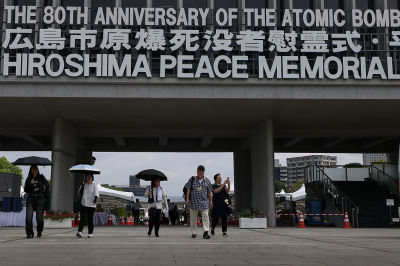Reflecting on 80 Years of the Nuclear Age
Eighty years have passed since the first atomic bomb was dropped on Hiroshima, sparking enduring debates over the decision. On August 6, America marked the anniversary of the bombing of Hiroshima, and three days later, the bombing of Nagasaki was similarly commemorated. These events came on the heels of the successful test of the first atomic bomb near Los Alamos in July 1945—a culmination of the secret Manhattan Project.

Historical Context and the Burden of War
When considering whether the bomb was justified, it is important to step into the shoes of America’s political and military leaders in 1945. After nearly six years of global conflict—America having entered the war following the attack on Pearl Harbor in December 1941—the nation had seen more than 16 million service members in action and endured heavy casualties. The cost of fighting was steep, with over a million American lives affected by death or injury.
In battles such as Okinawa and Iwo Jima, the ferocity on both sides was staggering. On Okinawa, the Japanese forces inflicted heavy losses among both military personnel and civilians, while American forces also paid a significant toll. The possibility of an invasion of Japan itself was estimated to result in between 500,000 to 1,000,000 American military deaths—a prospect that deepened the sense of urgency among the nation’s leaders. Even before Japan was invaded, preparations were underway to recognize the inevitable casualties, with half a million Purple Heart medals already set aside.
The Desperate Calculus of Invasion
Japanese leaders, steeled for a fight to the bitter end, anticipated a defense that could cost 20 million military and civilian lives, potentially plunging the country into widespread starvation and domestic collapse. There were even plans to execute thousands of prisoners of war. Under these dire expectations, many American military strategists regarded the use of the atomic bomb as a necessary measure to force a swift conclusion to the conflict.
For those who experienced the war firsthand, including a generation of service members whose lives were forever altered, the decision to deploy the bomb is often viewed as a painful but necessary choice. Many military families, having absorbed the shock of brutal losses in previous campaigns, believed that foregoing the bomb would have led to even greater bloodshed.
The Impact of a Momentous Decision
Using the atomic bomb ultimately saved countless lives by averting a prolonged and bloody invasion. Although the tragedies at Hiroshima and Nagasaki—with immediate death tolls and subsequent suffering from radiation—are hard to fathom, the alternative scenario of a full-scale invasion might have cost tens of millions more lives, both American and Japanese.
Moreover, it is plausible to consider that without the deterrent power of nuclear weapons, another large-scale conventional war might have erupted in Europe or Asia. The presence of atomic arms arguably prevented further conflicts by keeping potential adversaries in check.
The Continued Relevance of Nuclear Deterrence
While the quest to limit the spread of nuclear weapons remains vital—especially given the dangers posed by extremist regimes—the notion of a completely “nuclear-free world” seems unattainable. The underlying knowledge necessary to develop these weapons cannot be unlearned. Even if international efforts were to eliminate existing arsenals, historical reality suggests that nations would eventually redevelop them in times of perceived existential threat.
The most effective path toward lasting peace appears to be the maintenance of a credible deterrent by democratic nations, combined with relentless efforts to prevent further proliferation. Ultimately, the presence of nuclear weapons has, paradoxically, contributed to saving lives and averting even greater human tragedies.

Rockin’ the faith, one verse at a time!
Growing up, the Bible’s stories deeply impacted me. Now, with over 15 years of preaching experience, I blend timeless teachings with modern technology, making them relevant for today’s world.
Bible Hub Verse is my platform to share historical insights and thought-provoking articles, exploring both familiar and uncommon Christian topics. My passion is building a welcoming online space for everyone to learn, grow in their faith, and discover the Bible’s enduring message.
Join the journey!
God bless you.






